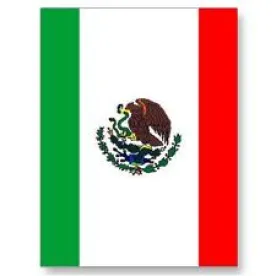Over the last several months, Mexico has made a number of important changes to the rules governing the importation and exportation of certain materials. This article focuses on changes to the rules governing compliance with mandatory technical standards affecting imports (known by the acronym NOMs, for Normas Oficiales Mexicanas), and the creation of automatic previous permits regarding steel exports.
Mexican mandatory technical standards (NOMs) compliance
Effective October 1, 2020, imports into Mexico are no longer able to avoid having to comply with mandatory technical standards (NOMs) through the use of “exemption letters.” NOMs are compulsory to all goods, products and services in Mexico, as relevant, when they may affect or pose a risk to the physical integrity and health of consumers, life of laborers in their workplaces, food safety, the environment, and other legitimate policy objectives.
Prior to October 1 of this year, importation of certain materials to be utilized in productive processes, or that would not be sold to the public in the same shape or form as imported, were permitted to enter under “exemption letters” that would allow them to be imported without proof of NOMs compliance. Although, the eventual sale of resulting good would still have to comply with relevant NOMs.
As of October 1, 2020, importers are no longer allowed to use such exemption letters and, upon importation, are obliged to demonstrate compliance with relevant NOMs. Thus, importers must either comply with relevant NOM:
1. Prior to the importation process, through the certification of NOMs compliance issued by an Authorized Verification Unit (UVA, for Unidad de Verificación Autorizada) in the country of origin, or in the country of exportation, or
2. After the importation process, through the demonstration of an existing services contract with an UVA, by way of which it would be certifying compliance within 40 natural days, either in a Bonded Warehouse, or in the importer´s address in Mexico.
A number of procedural rules apply to each of the aforementioned options, and some other requirements must be previously fulfilled in order to benefit from them. Also, Mexican authorities have issued, and continue to issue, administrative criteria to clarify their practical applications (an issue which we intend to cover in a future publication).
While exemption letters no longer are permitted, it is important to keep in mind that other exclusions may apply. For example, not all imports are subject to NOM-compliance (as per their relevant tariff lines), and the exemption to temporary imports -such as those made by IMMEX companies-, and to certain definitive imports -such as those made under the terms of a PROSEC program- remain valid.
Certain steel exports are subject to “automatic previous permits”
On August 28, 2020, the Mexican Government published this new obligation relevant to the exportation of certain steel products; it was expressly issued in pursuance to the Section 232 measures in the United States, and became enforceable on September 2, 2020.
The Mexican Government argued that the automatic previous permits would exclusively be used to monitor the use of originating steel, and to avoid the circumvention of rules of origin. Requirements to obtain such permits are included in the August 28 publication, and the Mexican Government offered that permits would be issued to all those that comply with them.
Despite such offering of statutory issuance, we have identified that an important number of companies have encountered, either a baseless limitation on the volumes to be exported, or plain denials of the permits due to requisites that are not considered in the August 28 publication.
It is strongly recommended that companies verify that their application is duly submitted in order to avoid rejections, and a number of companies are considering challenging the arbitrary limitation on authorized export volumes.






 />i
/>i
